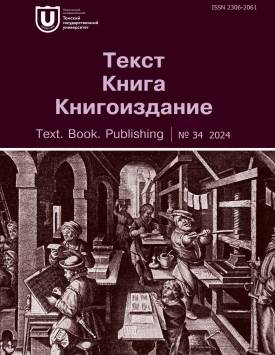“May stagings be cursed now and forever”: Mikhail Bulgakov as the so-called author of War and Peace
The article investigates the movement of the text of the staging of Leo Tolstoy's War and Peace (written by Mikhail Bulgakov in the early 1930s) in the aspect of genetic criticism. Particular attention is paid to the latent polyphony of Tolstoy's novel, revealed in Bulgakov's manuscripts and preparatory materials. According to the stated hypothesis, Bulgakov's “tailor's work” is explained by the “resistance of the material”: the monolithic structures of the Russian epic novel displayed amazing stability at an attempt of intermedial translation. The article analyzes the key techniques used by the playwright: the exteriorization of internal speech, the re-distribution of the words of the Author and the words of the Hero, the inclusion of the figure of the Reciter. The latter technique, related to the innovative school of Vladimir Nemirovich-Danchenko, transpires to be the key in the style of the author's intention: The Reciter in the work becomes not only the embodiment of the author's word, but also a translator, a way of verbalizing the inner voice, a key ethical and axiological instance. The analysis of the manuscripts and preparatory materials allows us to raise the question of the inclusion of such quasi-authorial materials in the collected works of the writer. Despite the noted innovation, it can be stated that, instead of the possibility of intensive exchange with the plot of the original work, the opposite extensive mechanism of routinisation worked - the form of the text's organization defeated the potential semantic energy. While working on the staging, Bulgakov apparently “did not experience” Tolstoy's novel (see Zorin about Dilthey's conception of Erlebnis). In fact, Bulgakov's War and Peace is a scriptor's text in which the author, like Borges' Pierre Menard, acts as a copyist (see Zenkin about this conception). This probably explains the deliberate denial of the significance of the work Bulgakov carried out. It is curious that, in a letter to Yevgeny Zamyatin, Bulgakov noted fatigue from working on Tolstoy's novel. The purity of such a denial reveals the posture behind this statement and makes one recall the comment of Tolstoy himself, who, at the moment of irritation, described War and Peace as “verbose rubbish”. The question of value of Bulgakov's War and Peace is most acutely resolved in preparing and publishing the collected works of the writer. In the author's opinion, such unexperienced scriptor's texts, playing a significant role in the study of the writer's creative laboratory, at the same time constitute the periphery of his literary heritage. And their acquisition in the format of an electronic digitized archive in this respect is fully justified (see http://bulgakov.literature-archive.ru/ru), which cannot be said about the academic collected works of the writer. The author declares no conflicts of interests.
Keywords
secondary and alternative, epic and drama, dramatization, genetic criticism, War and Peace, Tolstoy, BulgakovAuthors
| Name | Organization | |
| Kozlov Alexey E. | Novosibirsk State Pedagogical University | alexey-kozlof@rambler.ru |
References

“May stagings be cursed now and forever”: Mikhail Bulgakov as the so-called author of War and Peace | Tekst. Kniga. Knigoizdanie - Text. Book. Publishing. 2024. № 34. DOI: 10.17223/23062061/34/3
